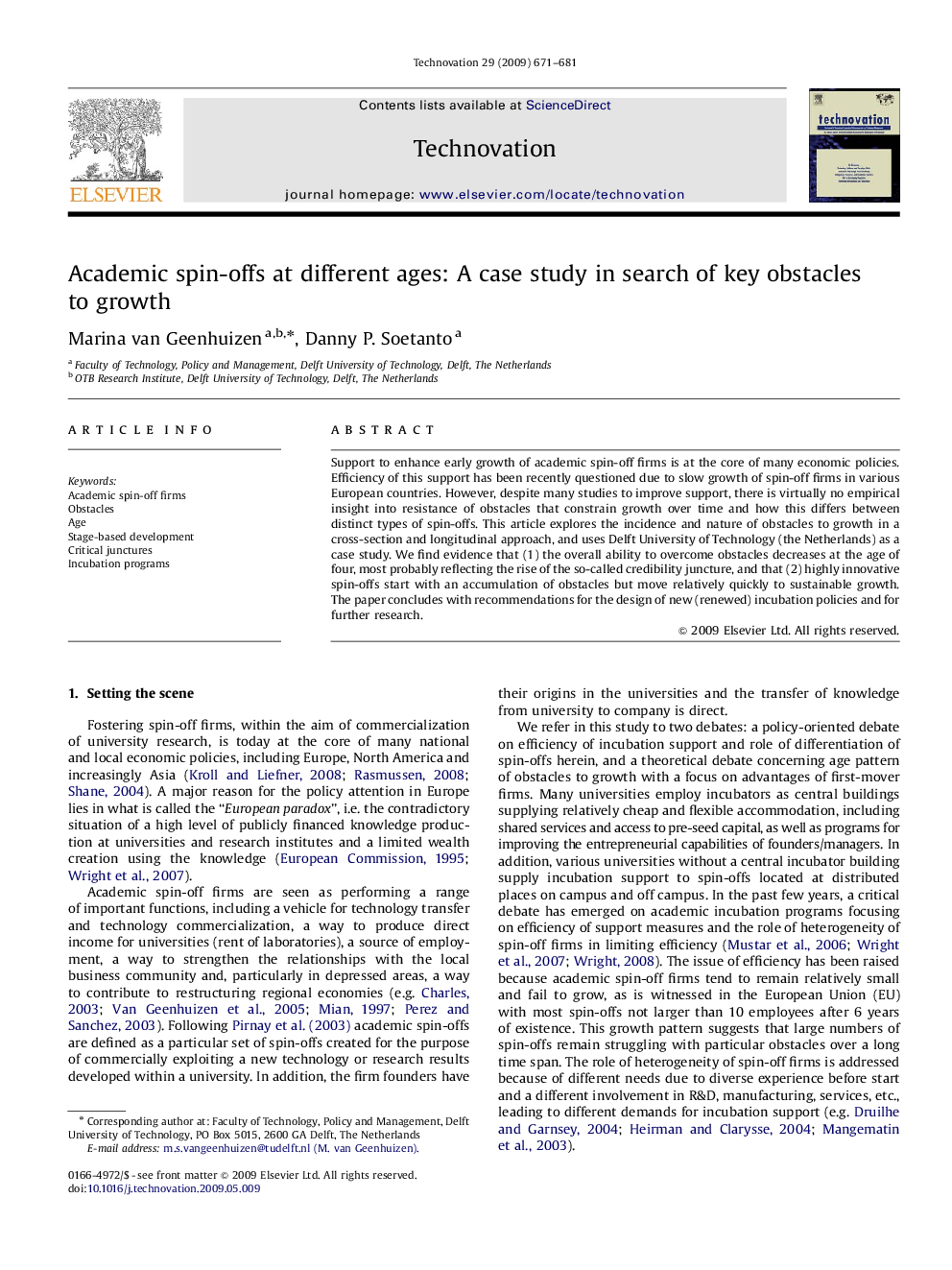| Article ID | Journal | Published Year | Pages | File Type |
|---|---|---|---|---|
| 1022532 | Technovation | 2009 | 11 Pages |
Support to enhance early growth of academic spin-off firms is at the core of many economic policies. Efficiency of this support has been recently questioned due to slow growth of spin-off firms in various European countries. However, despite many studies to improve support, there is virtually no empirical insight into resistance of obstacles that constrain growth over time and how this differs between distinct types of spin-offs. This article explores the incidence and nature of obstacles to growth in a cross-section and longitudinal approach, and uses Delft University of Technology (the Netherlands) as a case study. We find evidence that (1) the overall ability to overcome obstacles decreases at the age of four, most probably reflecting the rise of the so-called credibility juncture, and that (2) highly innovative spin-offs start with an accumulation of obstacles but move relatively quickly to sustainable growth. The paper concludes with recommendations for the design of new (renewed) incubation policies and for further research.
